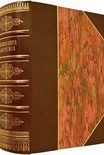Sarah Phillips Andrea Lee (classic english novels .TXT) 📖

- Author: Andrea Lee
Book online «Sarah Phillips Andrea Lee (classic english novels .TXT) 📖». Author Andrea Lee
Outside the hospital windows a flock of sparrows wheeled on a whitish sky from which a few big flakes of snow were falling; to the west a development of ranch houses spread over the brown hills. I walked over to the window, stuck my hands into the back pockets of my jeans, and pressed my nose hard against the glass, thinking about times when Daddy had played jokes on me. Once when I was very little he had told me that a perfectly ordinary rosebush that he had bought at J. C. Penney was a magic flowering tree whose blossoms would form letters that would spell out my name. It had been a brief, idle tale, invented to relieve the tedium of a trip home from the shopping center, but I had dwelt on the idea all winter and spring, and in summer when the bush brought forth a perfectly ordinary constellation of roses, I had been filled with disappointment and rage.
Matthew came and stood beside me at the window, looking ridiculously young in a faded Atlantic City sweatshirt under a sports jacket. “What are we going to do?” he said, rubbing his chin with his knuckles.
“What are we going to do about what?” I said, with my nose still pressed against the window, so that a circle of water vapor grew and shrank on the glass with my breath. “Matty, have you ever heard of a kind of flowering bush that spells out letters?”
Matthew looked at me. “You know, you’re being really obnoxious,” he said. “You’re not helping anything at all.”
A nurse came up to us and told us that visiting hours for Reverend Phillips were over. I went up to the bed and laid three fingers on my father’s cheek, as one does to awaken a sleeper, but the petulant expression, the childish heaving breaths did not change. Through my fingers, up my arm like an electric shock, ran the intimation of an anguish more complete than any I had ever experienced. I jerked my hand away and walked quickly out of the hospital room, pausing only to mutter to Matthew, “It’s not me who’s behaving badly!”
3
That night it snowed harder, a wet spring snow that threatened to break down the branches of the old azaleas around our house. At six the next morning, Mama, Matthew, and I were summoned to the hospital because Daddy had stopped breathing. The willful, childish expression had vanished from his face; within the chrome bars of the bed he looked tranquil, yet somehow more sophisticated than he had ever looked in life, with an aloof, delicately amused expression, as if his last thought had been a witticism of such subtlety that none of us could have appreciated it. And the joke was, I thought, that he wasn’t there—he had slipped out of our lives as swiftly and fantastically as characters in children’s stories stepped out of everyday life into Oz, or the country back of the North Wind. I leaned over the bed and rubbed my cheek against his big freckled wrist and hand that had assisted at so many christenings, weddings, baptisms, and deathbeds, and felt for the first time the limited contours of a body that had often seemed to me to be larger than life.
Mama was crying, and a nurse with a turned-up nose gave her a cup of pink liquid to drink. Two doctors had been assigned to the case: Dr. Casey, who was tall, thin, and balding, with a good-humored, rather playful look on his face, and Dr. Henry, a friend of my father’s, who was short, fat, and grave. Dr. Casey came into the room and said to Mama, “We’re all so sorry about your husband, Mrs. Phillips. There are many of us here who followed his civil-rights work with great interest.”
“His work?” said my mother in a strange, slow voice. “His work killed him.” She had a faintly puzzled look in her eyes, as if she had no idea what she was saying.
“And one thing you can be glad of is that he certainly felt no pain,” continued Dr. Casey smoothly. He stroked his wispy sideburns and darted at me a puzzling little wink, a wink that seemed less flirtatious than hortatory, the kind of wink a scoutmaster might dart at a charge who seemed in danger of slacking off. “There was no suffering at all.”
“He left that for us,” said Matthew flatly, and I stared at him. It occurred to me for the first time in my life that my mother, my brother, and I had each had a separate bond to my father, unfathomable to the others: now each of us had his own mysterious store of anger and grief.
4
The first person who arrived when we got home from the hospital was Mrs. Eakins, head of the Youth Choir and the Women’s Missionary Guild at New African. Mrs. Eakins was a small, energetic old woman with a squashed little dark-skinned face like a raisin—one of the avid churchwomen whom my mother sometimes described as being willing to shed any amount of Christian blood for my father. She rang the bell and then walked into the house before anyone came to the door. “I know it’s not even nine o’clock in the morning,” she said breathlessly, “but I had to find out how he is!”
“He died very early this morning,” said my mother.
At those words Mrs. Eakins simply flung herself on the living-room floor, an act that showed a resilience of muscle I never





Comments (0)